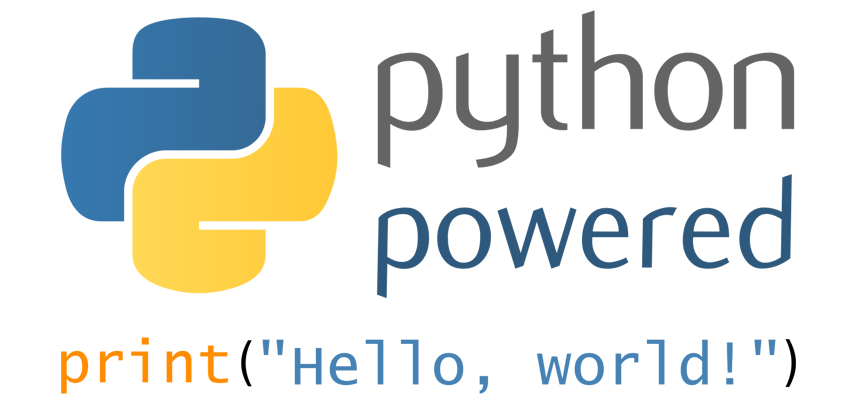Show:
Python App Development for Comprehensive Digital Solutions
In the realm of software development, Python stands as a versatile and robust programming language. Its simplicity, readability, and extensive libraries have positioned it as a top choice for creating a wide range of applications. In this article, we will explore the world of Python app development, emphasizing how it contributes to crafting comprehensive digital solutions for businesses and individuals.

Python’s Universal Appeal
Python’s popularity has witnessed exponential growth in recent years, and for good reason. It brings a multitude of advantages that make it an indispensable language for developers across the globe:
Readability: Python’s clean and concise syntax is akin to plain English, enhancing the ease of code reading and writing. This readability reduces the likelihood of errors and simplifies code maintenance, making Python an excellent choice, particularly for beginners.
Versatility: Python is a general-purpose language, making it suitable for a wide spectrum of applications. Whether you are developing web applications, scientific simulations, data analysis tools, or machine learning models, Python proves itself to be a dependable ally.
Rich Ecosystem: Python flaunts an extensive standard library and a thriving ecosystem of third-party packages and frameworks. This plethora of resources accelerates development and empowers developers to tap into pre-built solutions for an array of tasks.
Community and Support: Python boasts an extensive and vibrant community of developers who actively contribute to its growth. This translates into a wealth of documentation, tutorials, and open-source projects available to assist developers in their work.
Python App Development for Web Solutions
Web development is a prominent domain where Python not only shines but also sets new standards, thanks to its robust web frameworks like Django and Flask. These frameworks empower developers to create sophisticated web applications with ease while adhering to best practices and industry standards.
Django: The Full-Stack Web Framework
Django stands tall as a high-level Python web framework renowned for its “batteries-included” philosophy. It equips developers with an expansive suite of tools, including an ORM (Object-Relational Mapping) system, authentication, and an admin panel. These features simplify intricate web development tasks, rendering Django a favored choice for crafting robust, feature-rich web applications.
Python app development with Django is the ideal choice for businesses aiming to create scalable and secure web solutions. Whether the goal is e-commerce platforms, content management systems (CMS), or customer portals, Django provides the capabilities required to bring ambitious web projects to fruition.
Flask: The Micro Framework with Unmatched Flexibility
Conversely, Flask, a micro-framework, offers greater flexibility to developers by providing only the essentials for web development without imposing a rigid structure. This simplicity makes it an excellent fit for smaller projects, prototypes, or scenarios where a minimalist approach is preferred.
The versatility of Python and its web frameworks enables the creation of various types of web applications, such as e-commerce platforms, content management systems (CMS), customer relationship management (CRM) tools, and more. Python app development ensures that businesses are equipped with the technology needed to thrive in the digital age.

Python’s Role in Mobile App Development
Python’s versatility and adaptability extend beyond web development, positioning it as a compelling and versatile choice for mobile app development as well. While native development in languages like Java (for Android) and Swift (for iOS) has traditionally dominated the mobile app landscape, Python offers a valuable alternative that comes with its own set of advantages.
Kivy: A Cross-Platform Powerhouse
Kivy, a Python framework, takes the spotlight in Python’s foray into mobile app development. What sets Kivy apart is its remarkable cross-platform capabilities, enabling developers to create mobile apps that operate seamlessly on both Android and iOS platforms, all from a single, consolidated codebase.
This cross-platform approach revolutionizes app development. Rather than juggling separate codebases for Android and iOS, developers can direct their efforts towards a single, unified codebase. This consolidation not only reduces development time but also optimizes resource allocation. By eliminating the need for dedicated Android and iOS development teams, businesses can operate more efficiently and cost-effectively while delivering a uniform user experience across platforms.
Performance Considerations
While Kivy excels in many scenarios, it’s essential to address performance considerations when opting for cross-platform development. In cases where maximum performance is non-negotiable, such as resource-intensive 3D games or applications requiring real-time processing, native development may remain the preferred choice.
However, for a broad array of applications encompassing business tools, productivity apps, content-driven platforms, and utilities, Kivy’s performance is more than adequate. It ensures a smooth and responsive user experience while simplifying development efforts. Developers can achieve high-quality results in less time, rendering Kivy an appealing choice for a multitude of projects.
Rapid Prototyping and Validation
Python’s influence in mobile app development extends beyond cross-platform solutions. Its simplicity and extensive library support make it an invaluable resource for rapidly prototyping and developing Minimum Viable Products (MVPs). These initial versions of applications play a pivotal role in testing concepts, gathering user feedback, and making informed decisions regarding the app’s future development.
Python’s libraries offer ready-made solutions for an array of tasks, enabling developers to expedite the creation of prototypes with efficiency and precision. Whether it’s the realization of a groundbreaking business idea or the implementation of an innovative feature, Python’s innate flexibility expedites the development process. This iterative approach ensures that businesses can meticulously fine-tune their app’s features and functionality based on user input, ultimately leading to a more polished and successful final product.
In essence, Python’s role in mobile app development is characterized by its versatility and adaptability. With cross-platform frameworks like Kivy, it provides a pragmatic alternative for businesses seeking to develop mobile apps efficiently and cost-effectively. While native development still maintains the upper hand for performance-driven applications, Python’s simplicity, rapid development capabilities, and support for prototyping make it an invaluable asset in the ever-evolving landscape of mobile app development.
By opting for Python in mobile app development, businesses can leverage its extensive ecosystem and tap into the expertise of seasoned development teams to craft innovative, user-friendly, and efficient mobile applications. Whether the target platform is Android, iOS, or a combination of both, Python empowers developers with the tools and resources necessary to streamline the development process and transform their mobile app visions into reality.
Click here to find out more.

 Return to Previous Page
Return to Previous Page








